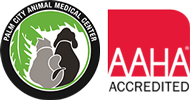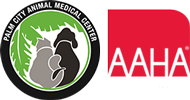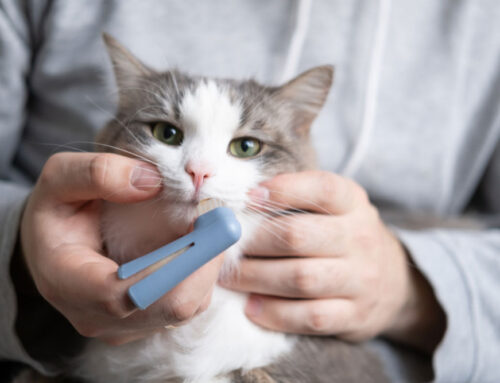Wandering through the food aisles of a pet store can be an overwhelming experience.
- Grain free!
- Whole grain!
- All natural!
- Organic!
- Raw!
- Premium!
- Fresh!
The terms scream at you from pet food packaging labels in every direction and have you so confused that you grab a bag that costs more than your cable bill, hoping it’s the top food for your beloved companion. If it costs that much, it must be great food, right? Sadly, that’s not always the case. And, that’s not the only misconception about pet food. Here, we debunk some common pet food myths.
MYTH: Organic, holistic, or natural foods are better for my pet.
TRUTH: Unfortunately, pet food labels claiming that their products are “premium” or “gourmet” are not required to contain any higher quality ingredients than any other foods.
“Organic” pet foods have different levels of, and may not be totally free from, pesticides, fertilizers, or additives.
Pet foods labeled as “natural” are monitored by the Association of American Feed Control Officials (AAFCO), the organization that regulates pet food manufacturers. These foods must only contain ingredients from plant, animal, or mined sources. They cannot be highly processed or contain artificial colorings, flavors, or preservatives. Out of all these claims, “natural” is the term most regulated.
MYTH: Grain-free food is the healthiest food available.
TRUTH:Grain-free food sales have skyrocketed in recent years thanks to the popularity of gluten-free diets in humans and highly effective marketing. In reality, most pets do not have grain allergies (they’re often more allergic to the protein source) and can handle some grain in their diets.
Also, the University of California Davis School of Veterinary Medicine is currently conducting a study linking grain-free diets to heart disease in dogs. Peas, lentils, legumes, or potatoes serving as main ingredients are believed to be causing a taurine deficiency in dogs and leading to heart disease. If your pet has developed a food intolerance or is on grain-free food, ask your veterinarian for appropriate food recommendations.
MYTH: The feeding guidelines on the food package are always correct.
TRUTH: Like humans, all pets are different. The feeding guidelines on your pet’s food package are a great place to start, but they may not be accurate for your pet. Some animals have a slower metabolism or are less active, and the recommended amount of food per day may be too much. On the other hand, your high-energy working dog may need more food than what the guidelines recommend.
Learn dog and cat body condition scores to verify that your pet is at a healthy weight, rather than relying on what a food label recommends.
MYTH: Meat meal and by-products are unhealthy for my pet.
TRUTH: Whole meat and meat meal are both excellent sources of protein. Dry meat meal can be added to food to provide a higher protein content because it doesn’t have the water content of whole meat. By-products, such as beet pulp and organ meats, are wonderful sources of vital nutrients for pets.
MYTH: Pets deserve special treats from the table during special occasions.
TRUTH:Just because you might splurge a little around the holidays and eat delicious treats doesn’t mean your pet can handle the same. Holiday foods can be high in fat or sugar and can cause severe gastrointestinal issues with animals.
Keep Halloween treats out of your pet’s reach: Chocolate candies can quickly reach toxic levels in dogs (and all those candy wrappers in your pet’s belly would be problematic, too).
Caused by pets eating too many fatty foods, pancreatitis is commonly seen in veterinary hospitals after Thanksgiving. As difficult as it may be to resist those sad puppy eyes begging for a turkey leg or potatoes slathered with butter, give him a treat that’s going to be better for his health (and your wallet) instead.
MYTH: All people food is bad for pets.
TRUTH: We know… we just told you not to feed your pet from the table. But, not all people food will hurt pets. If you want to spoil your pet with something special, try these table treats:
- Lean meats that aren’t heavily seasoned
- Fresh fruits and veggies, but stay away from grapes and raisins for dogs
- Healthy carbohydrates, like rice, oatmeal, and sweet potatoes without butter and spices
Not all foods that are healthy for you are also healthy for your pet. Check out this list of foods that are toxic to pets, and, if you’re ever unsure, give us a call before adding a food to your pet’s diet.
Confused about the label on your pet food? Not sure which food is best for your pet? Give us a call at 772-283-0920 to help unravel your pet’s nutritional needs.








Leave A Comment